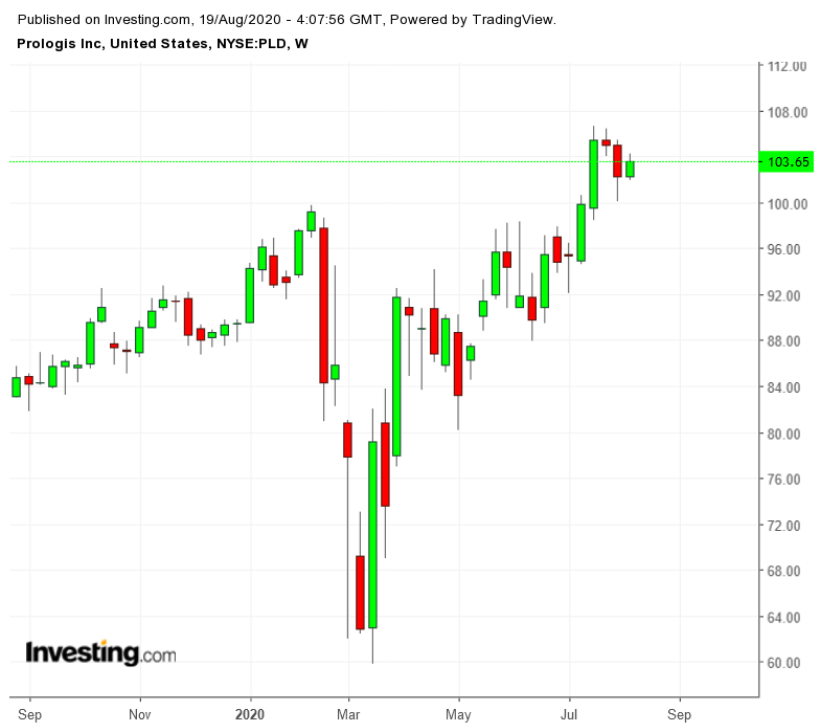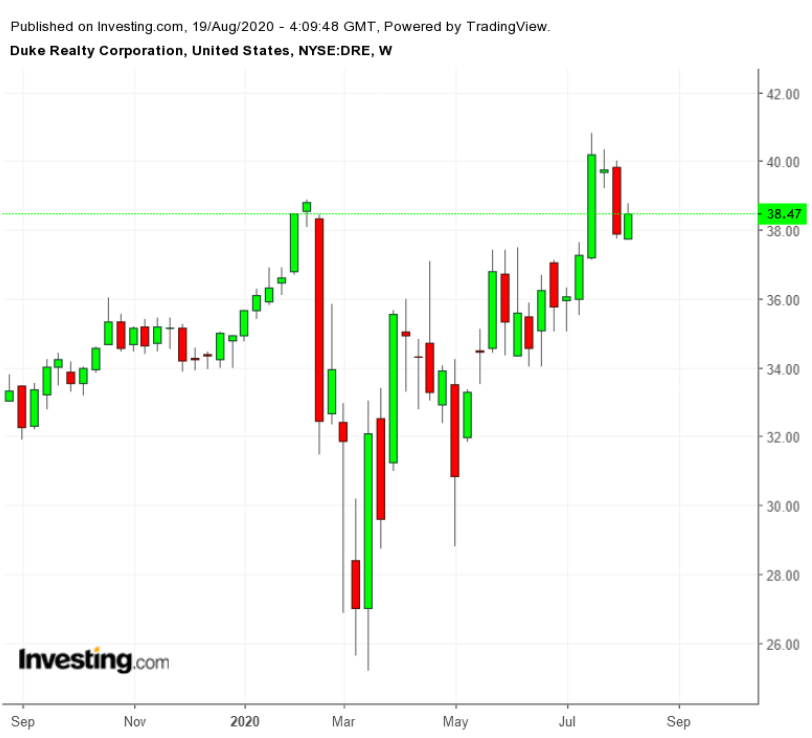When interest rates decline, many investors take refuge in real estate investment trusts (REITs) due to their higher yields and payout stability. But after the global health crisis, this general rule doesn't apply.
Commercial property markets in major economies are under pressure as buildings that once housed restaurants, shopping malls and offices have gone quiet. In an environment where tenants are struggling to pay their rents, buying REITs for their high yields is a risky bet.
Hurt by the changing business needs in the post pandemic environment, the S&P 500 REIT Index is underperforming the broader market. While the S&P 500 has recovered from the March dip and is up 5% for the year, REITs are still down 7%, becoming one of the worst performers this year.
According to S&P Global Ratings, retail landlords will have to contend with their tenants’ financial distress until at least 2021 as companies defer rent payments and some seek bankruptcy protection.
“We expect a bumpy road to recovery for retail REITs as rent deferrals, risk of write-offs and the accelerated pace of store closings will impact recovery prospects for retail landlords,” the report said.
“As a result, we think credit metrics may not return to pre-pandemic levels until 2022.”
S&P has negative outlooks on 29% of North American retail REITs, up from 10% in December. Retail REITs with higher exposure to essential businesses, like grocery stores and banks, have had better luck collecting rents than those with more non-essential and distressed tenants, according to the report.
For example, Simon Property Group Inc (NYSE:SPG), the largest shopping mall operator in the US, has seen its stock plunge about 60% this year, as stores struggled to pay rent with some filing for bankruptcy.
Winning Bets
But amid these shifting trends, which have hurt a variety of REITs, there are some winners emerging. While the pandemic has forced malls, restaurants and offices to close, and compelled employees to work remotely, it has accelerated a shift toward online shopping.
That trend is fuelling demand for warehouses and fulfillment centers. Prologis (NYSE:PLD) and Duke Realty (NYSE:DRE), industrial real estate investment trusts that own and operate warehouses, are both trading at their highest levels since the beginning of the financial crisis.
These stocks offer a good diversification for investors within the sector. They also offer a way to bet on the future of retail, as their warehouses are the lifeblood of online giant Amazon (NASDAQ:AMZN) as well as popular brands like Home Depot (NYSE:HD) and Wayfair (NYSE:W).

In July, Prologis reported strong second-quarter numbers, showing the pandemic-triggered shift in shopping habits is helping the San Francisco-based warehouse operator. Core funds from operations (FFO) per share rose to $1.11 versus $0.77 in the second quarter of 2019.
"While e-commerce is clearly a tailwind, demand is broad-based across a variety of categories—a trend we saw accelerate in June," Prologis CEO Hamid Moghadam said in a statement.
Prologis’ stock is up 16% so far this year, closing yesterday at $103.65, while shares of Duke Realty, an Indianapolis-based warehouse and distribution property operator, have risen about 11% in that period. They were at $38.47 at the closing bell Tuesday. It's latest earnings report showed a slight increase in revenue.

Bottom Line
Even with current, extremely low interest rates, investing in REITs that focus on office and residential markets still carries a lot of risk. But changing patterns for shopping and working are boosting the value of REITs serving e-commerce giants, creating new opportunities for investors seeking higher yields.
